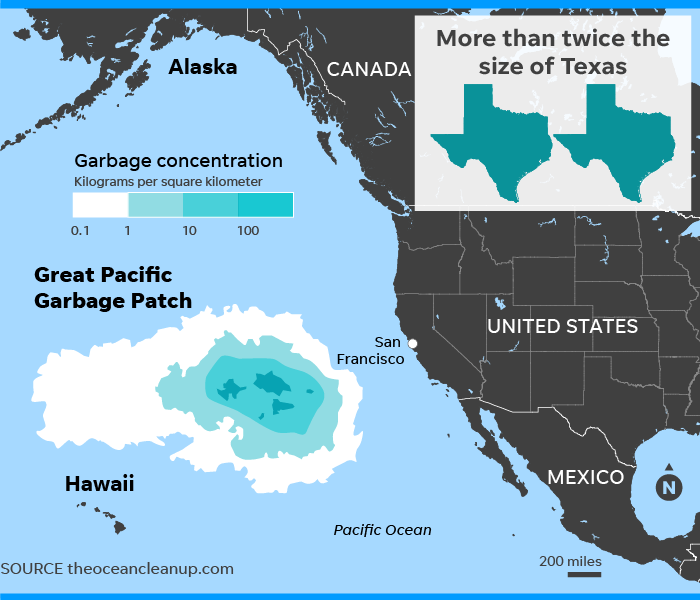Hello and welcome back to my civic issues blog! Today we will be continuing to address our environment. This week’s topic is plastic pollution.
A Quick Anecdote:
To give a little perspective on how prevalent plastic pollution is in our everyday lives, I’ll start with a quick anecdote. Throughout high school, I stocked the shelves at the local grocery store. Most days, part of my role was to replenish the water bottles on the shelves from the stockroom since plastic water bottles were one of the most popular products in the whole store. I would usually bring out about 20 35-packs of water bottles, but on especially warm summer days, there were a few times where I would bring out 50+ 35-packs of disposable water bottles personally. That is over 1700 disposable water bottles being purchased in one day!
Only about 29% of disposable water bottles get recycled nationwide, according to the EPA. If we did the math, that means over a thousand water bottles are being thrown out in a single day in my town alone. Imagine what that number is world wide!

Credit: UN
The Extent of Our Issue:
That being said, water bottles make up only part of our larger worldwide plastic pollution issue. It is estimated that plastics pollution was at 348 million tonnes in 2017, according to UNEP.
Credit: Sport Diver
This pollution has a major impact on wildlife ecosystems. After all, about 11 million tonnes of plastic waste flow into the ocean each year. This pollution affects over 800 marine and coastal species, often through entanglement and ingestion. In the Pacific ocean alone, there is a massive garbage patch that spans nearly twice the size of Texas. That amount of pollution in the ocean is unfathomable to me.

Credit: USA Today
On top of affecting wildlife, plastic pollution has an impact on human health as well. Exposure to plastics could potentially affect fertility, hormonal, metabolic, and neurological activity. Additionally, burning plastics contributes to air pollution.
UN Resolution:
On a more positive note, the UN is working on a cure to the plastic pollution epidemic. This past week, the UN passed a resolution on plastic pollution worldwide. Its goal is to address the full lifestyle of plastics, the design of reusable and recyclable products, and the need for enhanced international collaboration to facilitate the plan to be realized. The premise of the plan is to gather the best recycling/plastic management policies across the world, and to create international laws encouraging their use. This deal is set to be the most significant environmental multilateral deal since the Paris accord.
Moreover, a major component of this agreement is how it is going to support the Paris accord. Protecting ecosystems from plastic helps our world reduce the impact of greenhouse emissions. After all, greenhouse gases are absorbed by the ocean, trees, and plants. If we are able to protect their ecosystems, we know it will benefit our climate change goals.

Credit: UN
This deal is only a resolution, but it is set to become a legally binding agreement by the end of 2024. Now, it might just sound like a promise to you, but the fact that the world is uniting to address this problem is huge. If this deal is done right, it could reduce plastic pollution immensely. Hopefully, we will see less photos of turtles stuck in plastic, plastic bags running down rivers, and mounds of plastic water bottles laying on the sides of the road.
What can YOU do?
I think it is our civic duty to protect our environment from plastic pollution and to reduce our footprint in general. At Penn State, it is simple things like using a reusable water bottle, avoiding the Styrofoam to-go boxes in the dining hall, or even recycling your cans/bottles after a night out (come on, I know most of you don’t recycle those types of bottles) that can go a long way. But from a more global perspective, it is huge that our world is coming together to address this issue.
Let me know down in the comments your thoughts on plastic pollution as a whole and on this new resolution passed by the UN. Do you think it will have a big impact?
Thank you for reading!
Sources:
https://www.usatoday.com/story/tech/science/2018/03/22/great-pacific-garbage-patch-grows/446405002/
